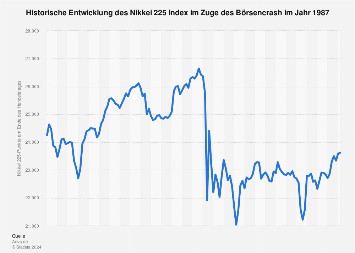Understanding the Nikkei Index and Its Impact on the Economy

Introduction
The Nikkei Index, officially known as the Nikkei 225, is one of the most important stock market indices in Japan and serves as a significant economic indicator both domestically and globally. Investors and analysts closely watch the Nikkei, as its performance reflects the overall health of the Japanese economy and can influence global market trends.
Recent Trends in the Nikkei Index
In recent months, the Nikkei Index has shown notable volatility, driven by various factors including inflation concerns, changes in monetary policy, and global market dynamics. As of October 2023, the index has been fluctuating around the 32,000 mark, a significant rise from its levels in early 2023, when it hovered around 25,000. The gains can be attributed to stronger corporate earnings, advancements in technology, and increased foreign investment.
Impact of Monetary Policy Changes
The Bank of Japan’s (BoJ) monetary policies play a critical role in influencing the Nikkei Index. Recently, the BoJ has maintained its ultra-expansive monetary policy to support economic recovery post-pandemic. However, signals of potential tightening have begun to emerge, which could impact market sentiment. Analysts are closely monitoring these developments, as any adjustments in interest rates or asset purchasing could lead to fluctuations in stock prices.
Global Influences on the Index
The Nikkei Index does not operate in isolation; it is heavily influenced by global economic trends, particularly those in the United States and China. With the ongoing trade tensions between these two major economies, Japanese exporters have been affected. Additionally, fluctuations in the US dollar and changes in commodity prices impact the earnings of major companies listed on the Nikkei, further driving the index’s performance.
Conclusion
For investors, understanding the Nikkei Index is essential for making informed investment decisions regarding Japanese equities. Its ongoing trends and the impacts of both domestic monetary policy and international market dynamics will continue to shape investment strategies. Analysts predict that as Japan’s economy stabilizes, the Nikkei may see continued growth. However, potential uncertainties loom, so keeping abreast of global and local economic indicators will remain crucial for stakeholders in the financial markets.









